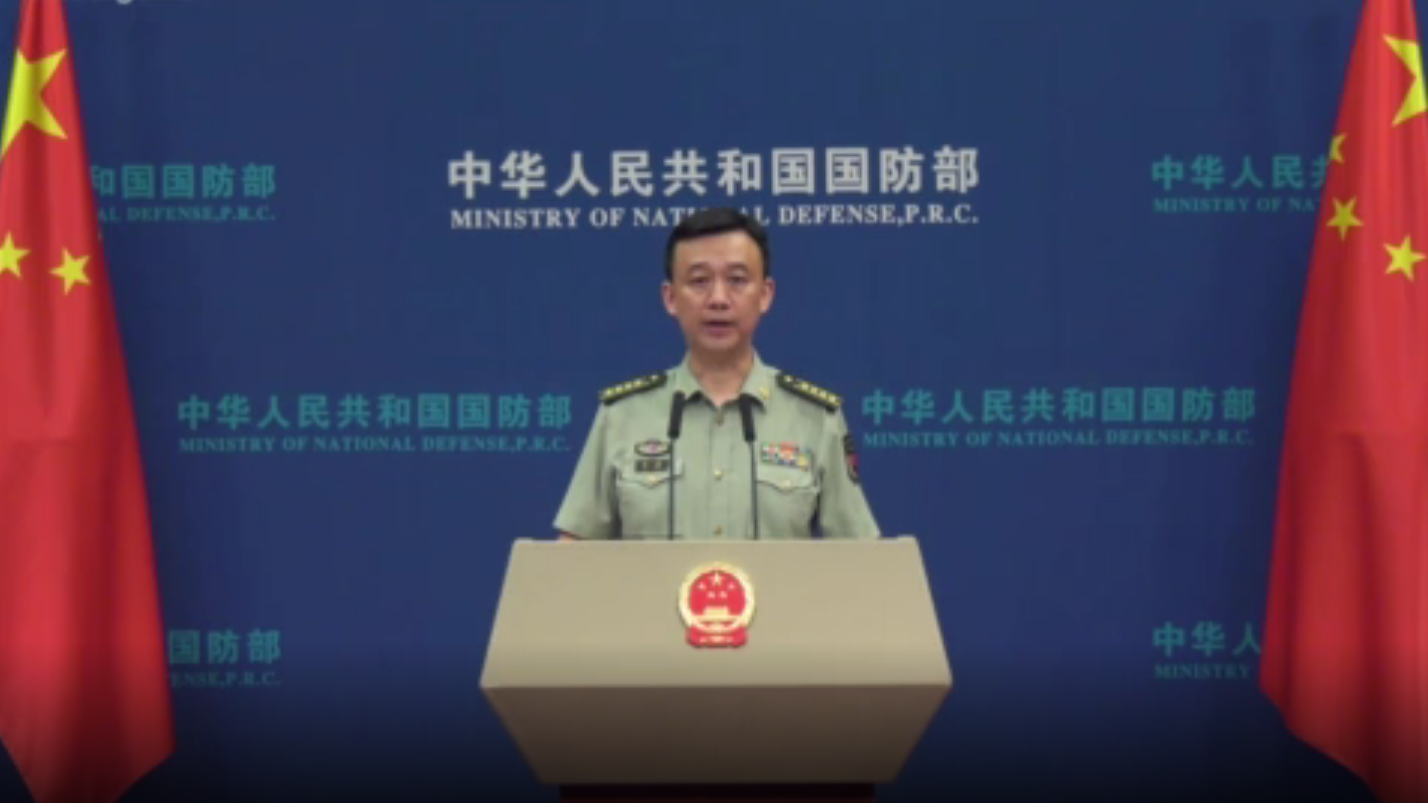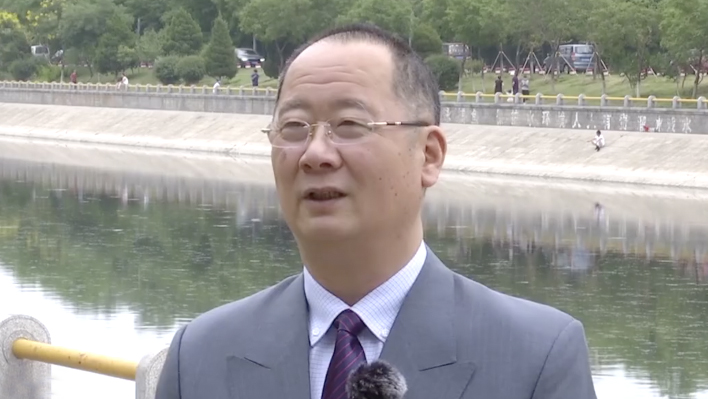02:06

China's Defense Ministry said a recent border clash between China and India was "completely caused by the Indian side's violation of consensus and unilateral provocation," and called on efforts to jointly safeguard border stability.
Ministry officials from both sides had agreed to take concrete steps to ease the tension in the China-controlled Galwan Valley during a meeting on June 6, but the Indian soldiers unilaterally violated the consensus, the ministry's spokesman Wu Qian said at a monthly briefing in Beijing on Wednesday when asked about the clash on June 15.
"The incident was entirely caused by Indian's violation of consensus and its unilateral provocation, and it happened in China-controlled territory. The responsibility rests entirely with the Indian side."
Wu said Beijing had told the Indian side to severely punish those responsible for the incident and discipline border troops to make sure it would not happen again.
The Galwan Valley is located on the Chinese side, and Chinese border troops have been patrolling and on duty in this region for many years, Wu said.
He said since April, the Indian border troops have unilaterally and continuously built roads, bridges and other facilities in the Galwan Valley, blocked the Chinese troops' patrol and attempted to unilaterally change the status of the border control.
Read more:
Timeline: FM spokesperson outlines China-India clash in Galwan Valley region
China's Wang Yi speaks to Indian FM over June 15 clash, urging thorough investigation
China has actively engaged in negotiations with the Indian side to cool down the tension, but its border troops violated the agreement made on June 6 and caused the escalation on June 15, Wu said.
On Monday, military officials from both sides had an in-depth and candid exchange on outstanding issues in border management and control and agreed to take the necessary measures to alleviate the tension, Wu noted.
He called on both sides to make an effort to safeguard the peace and stability in the area.
Wu said China and India are neighbors and that keeping peace and stability in the border area serves the interests of both sides. The two sides should keep up the dialogue and work together for peace and tranquility on the ground along the border, he said.
The Chinese Foreign Ministry also made a statement regarding some details of the June 15 clash in the Galwan Valley.
The ministry's spokesman Zhao Lijian made three points, saying "the right and wrong of the incident is very clear, and the responsibility rests entirely with the Indian side."
First, Zhao said, it is the Indian troops that intruded China's territory.
The Indian border troops had unilaterally built roads, bridges and other facilities in the China-controlled Galwan Valley since April, and in the wee hours on May 6, its troops trespassed into China's territory and built fortification and barricades, and therefore China had to strengthen border control, he said.
Second, it was the Indian troops that violated the consensus made after a commander-level meeting on June 6.
After negotiation, India had torn down the illegal fortification and barricades in China's territory and promised not to intrude China's border again, and two sides also agreed to build its own outpost on its own line of actual control, Zhao said.
But on June 15, Indian border troops trespassed China's border again and destroyed Chinese troops' tents, and when Chinese soldiers tried to negotiate, the Indian troops "abruptly violently attacked" Chinese soldiers and such provocation caused "fierce physical conflicts and casualties," he said.
"It's the Indian side who violated international rules and attacked Chinese soldiers," Zhao said, reiterating that China hopes India could strictly abide by the consensus made by both sides to cool down the tension in the area and work with China to maintain peace and stability in the border.
02:25

Cheng Xizhong, a visiting professor from the Southwest University of Political Science and Law, told CGTN that the overall situation along the Sino-Indian border is peaceful and stable.
He said the Galwan Valley clash is only a small incident and that the two sides have held two high-level meetings between senior military officials and agreed to cool down the tension.
India seems to be downplaying the incident as Prime Minister Narendra Modi said on Friday there were no intrusions into India, and no posts were captured.
Cheng said it highlights India's willingness to find a solution to the problem. As two important emerging economies, China and India give top priority to bilateral cooperation and have reached a consensus on jointly dealing with new global challenges.
Cheng said he believes the leaders of both sides have the wisdom to properly handle the border issues.
(CGTN's Tang Bo also contributed to the story.)